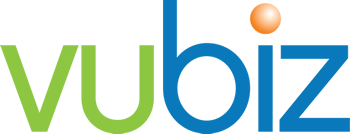 |
Written by Liz McDermott |

Diversity, equity, and inclusion (DEI) training has been around for a while. It’s often offered as part of human resources (HR) training or as a special event for employees. However, recent conversations about diversity and inclusion have encouraged more organizations to integrate DEI into regular workplace programs.
Increasingly, HR is looking for ways to reduce unconscious bias, promote a diverse workforce, and create a more inclusive workplace. In Canada, DEI training is an important way to build an inclusive workplace that reflects the diversity of the Canadian workforce. Human capital is the most valuable resource in an organization, and DEI training courses can help businesses create an environment where different perspectives are valued and encouraged. Fostering learning and development brings opportunities for all workers to gain knowledge and emotional competencies for a more productive workforce.
Lack of Recognition of Diversity, Equity, and Inclusion Issues in the Workplace
A Canadian study showed that nearly a third of working Canadians reported that they had seen or experienced judgment or misconduct at their workplace based on their ethnicity or their skin color.
Canadian history reveals a legacy of injustices against racial and ethnic groups, including First Nations People, Black Canadians, and Asian Immigrants. Global politics also influenced Canadian politics and culture, thus propagating prejudices and biases against communities of different genders, sexual orientations, and so on.
As of March 2022, Nova Scotia became the first Canadian center to introduce legislation that specifically addresses hate, racism, and inequity. The Dismantling Racism and Hate Act enables the government to require other public bodies, such as a municipality, village, college, and a university, to develop strategies and equity frameworks by July 2023.
It's no surprise that research by Cathy Gallagher-Louis, Principal at CGL Consulting, finds that Canadian business leaders and HR managers are often shocked to learn about the extent to which harassment and prejudice are happening in their organizations.
Lack of Leadership Support in Leading the DEI Journey
One of the biggest challenges of creating inclusive workplaces through DEI work is the lack of recognition of issues, with more leaders waking up to these issues happening in their businesses. Many Canadian organizations don’t understand the key concepts that surround diversity, equity, and inclusion in the workplace.
Lack of awareness of core concepts related to DEI is the most obvious reason for training. New hire orientation training and annual compliance training are vehicles to help bring clarity and understanding to the complexity of diversity, equity, and inclusion at work, yet many organizations do not include training courses on these concepts.
Core DEI Training Concepts for The Canadian Workplace
Diversity
The presence of different groups of people in one place is defined by their race, ethnicity, nationality, gender, sexual orientation, religious beliefs, political affiliations, socioeconomic status, language(s), abilities or disabilities, and age. An organization is diverse when its people at all levels are a good representation of the society it functions in.
Equity
Equity is the process of promoting fairness by institutions or systems to people with different needs and backgrounds. It considers people’s differences and adjusts for existing inequalities so that everyone can reach the same outcome. Equity and equality are not the same.
Inclusion
Inclusion is about the qualitative experience around diversity. It is the extent to which everyone feels a sense of belonging and value within a given organizational setting.
DEI Training Courses Provide Support to Workplace Fit for “Visible Minorities”

Like organizations in other countries, Canadian businesses appear to be suffering from the “imperfect execution” of diversity and inclusion practices. Visible minority managers, professionals, and executives appear to be at a disadvantage in terms of their career advancement.
An important aspect of career advancement is how well employees feel they fit into their organizations. While all new hires are expected to adjust to the norms of their employing organizations, those from underrepresented groups (including those from ethnic/racial minorities) may have more difficulty doing so.
Access to training topics like unconscious bias, cultural awareness, and stereotypes can foster a work environment of high awareness where all staff feel welcomed and respected, regardless of gender, race, ethnicity, color, ability, age, sexual orientation, size, national origin, religion, marital status or any other type of unlawful discrimination or harassment.
The Cost of Not Creating an Inclusive Workplace Culture
Leadership teams and HR managers need to be aware of the economic impact of diversity in their organizations. In the current globally competitive marketplace, organizations cannot afford to underutilize any segment of the talent pool. Demographic shifts and globalization are exerting pressures on both the workforce and the marketplace.
A growing proportion of the labor force in Canada consists of visible minorities, many of whom are immigrants, and these talented, hard-working women and men will be critical to the performance of Canadian companies and firms in the decades to come.
Diversity and Inclusion Training Benefits

A diverse organization with an annual DEI training course completed by staff keeps awareness top of mind on the business assets of working in an inclusive matter, including what HR services and resources are available to staff and how to identify and demonstrate inclusive behavior.
The primary benefits to employers offering an annual DEI training course include developing a workforce that can:
- Manage change effectively
- Develop stronger client relationships by understanding how to serve a variety of people
- Attract and retain top talent
Vubiz offers a Diversity and Inclusion in the Workplace online course for employers in Canada that HR managers can easily implement into existing training programs on their LMS, or use the Vubiz website for workers to access training.
Managing Social Stereotypes at Work
If social stereotypes of underrepresented groups are negative and undermine the credibility of both the group and of individuals within that group, then Canadian employers will miss out on ideas and innovations because these employees don’t feel safe expressing their opinions at work.
DEI Training as a Competitive Advantage
Critical elements of the employment value proposition influence candidates’ selection of a company for which to work. For many companies, celebrating a diverse workforce is a key differentiator.
HR Leadership Skills for Inclusive Workplaces
Certificate courses are available for HR managers looking to gain the necessary skills to develop diversity and inclusion services and resources that support a diverse ecosystem.
At a minimum, HR professionals can take a Foundational DEI Practices course to gain the following competencies:
- Cultural finesse when explaining important terms surrounding DEI
- Describing the various dimensions of diversity and how they shape employee attitudes and behaviors
- Developing internal services for management to practice allyship in the workplace
- Responding skillfully and with confidence when witnessing discriminatory behavior
- Promoting the value of DEI competencies as an individual and an organization
Conclusion: The Path Ahead for DEI Training
A strategic focus on DEI training is relatively new for Canadian businesses. HR leaders are at the forefront of ensuring the success of DEI efforts as digital forces continue to shape the workforce.
While executives “talk the talk” about the critical nature of supporting an inclusive workforce, it's time for Canadian leaders to increase investment in DEI training and to hold HR leaders and managers accountable for DEI outcomes.
For more information, please contact us to inquire about our DEI training.
